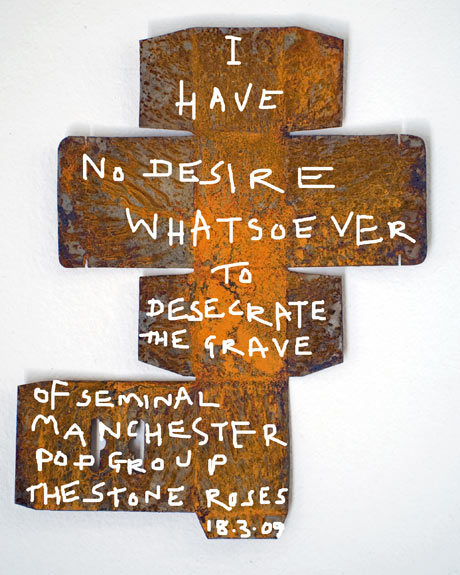Tragedy is when I cut my finger. Comedy is when you fall into an open sewer and die - Mel Brooks
I've recently been indulging in the wilfully obtuse comedy of Stewart Lee and, although it's been a true pleasure in many ways, I think I'm in danger of ruining my life. The problem is - such as when you discover anything of such irrefutable brilliance - I now find my outlook on comedy has been permanently and irreversibly twisted.
Stewart Lee's 'How I Escaped My Certain Fate: The Life and Deaths of a Stand-up Comedian, is so skillful in its deconstruction of the art, that it leaves one wondering whether they've ever truly said a 'funny' thing in their lives!
I'm by no means a comic genius (modesty) but I now worry every quip I've ever attempted is most likely based on a construct so clichéd as to render it verbal diarrhoea of the most fetid kind.
The thing is, Lee's not only made me worry (realise) that I'm not funny but his thinly veiled contempt has also made me uncharacteristically intolerant myself of late.
Recently, I had an argument with a woman on a train. The lady in question refused to move down the carriage despite other commuters being unable to get on - a common occurrence when commuting and a mere trifle you might quite fairly surmise - but, for me, someone who wouldn't think boo to a goose, it unexpectedly became an affront to my very principles of decency.
I found myself tweeting about it, ranting in a car full or friends about it and generally wearing the expression of a man whose testicles were perennially trapped in Janet Street Porter's overbite - and here is a man who was once - a friend of mine would have it - defined by a 'camp, chirpy optimism'.
Of course, like Lee, it's clear that having a son has had an irrevocable effect on my outlook. I'm far quicker to be wrought into a frenzy by life's absurdities and, in a reversal of the truism that people get more right wing as they get older, I seem to be leaning further left than I ever have before. Yes, a healthy dose of rage is undoubtedly a good thing but it can lead to a kind of waking nightmare.
Thankfully, to save me from myself, Lee offers a much needed lifeline, a way out of the corner that we paint ourselves into.
After a set packed with intelligent analysis of the very nature of comedy itself, he concludes by standing silently with a soft toy on top of his head, surmising that, despite it all, to his one month old baby there is still nothing funnier than a cuddly giraffe balanced precariously above an otherwise completely normal expression.
And the one month old baby, of course, is quite right.








